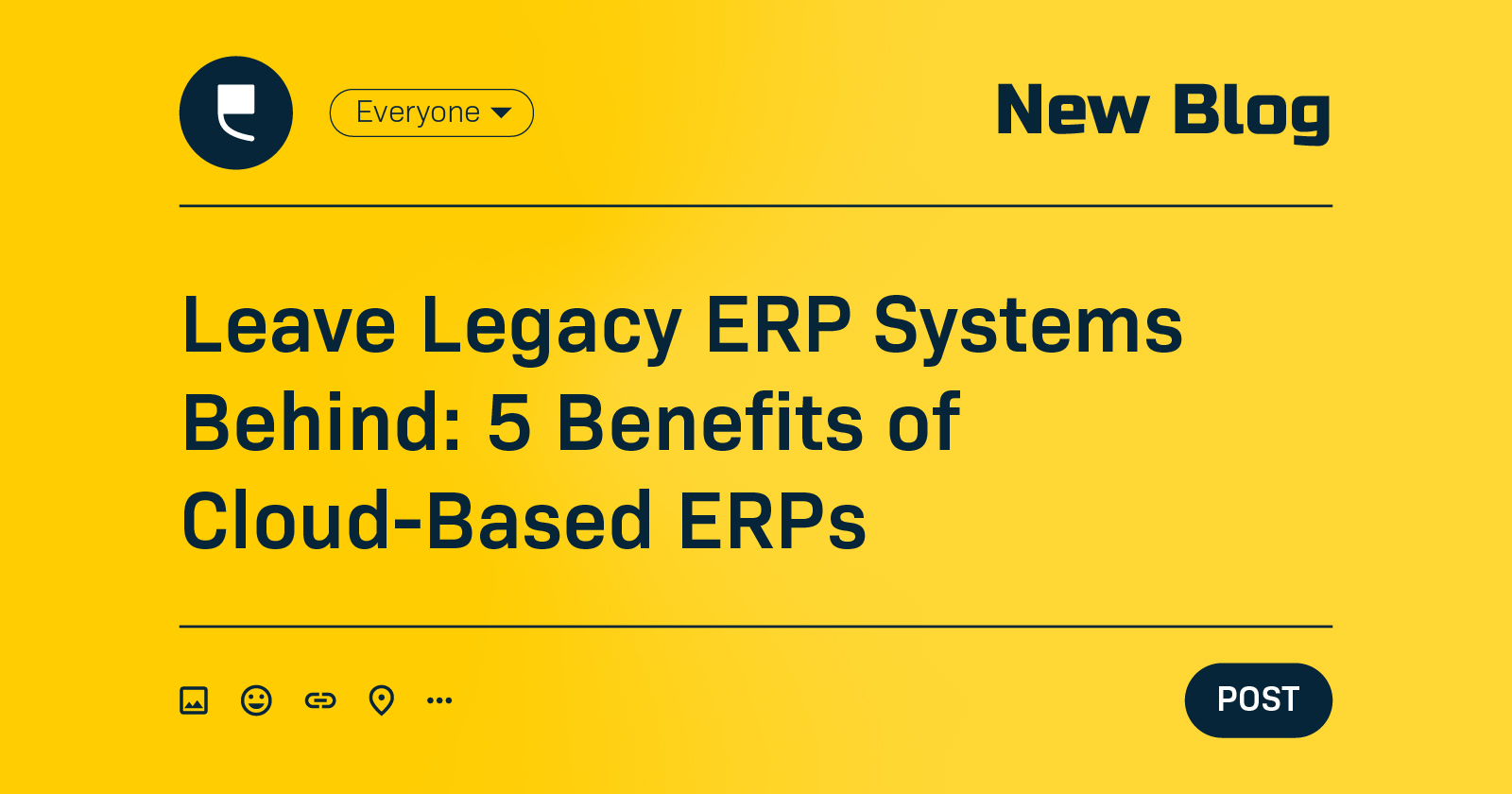
Leave Legacy ERP Systems Behind: 5 Benefits Of Cloud-Based ERPs
CFOs and small businesses are reluctant to shift to the cloud for many reasons. The familiarity of something that works is tempting. However, as cloud-based ERPs have become more widespread and affordable, they put several “benefits” of legacy software in question.
For example, one long-term belief is that legacy systems, especially on-premise systems, are more customizable and secure than cloud-based ERPs. But, that’s hardly the case. Customizing and maintaining these systems requires significant resources, including an in-house staff. Furthermore, it becomes the organization’s responsibility to keep up with rapidly evolving security threats and trends. Legacy systems also risk becoming obsolete or incompatible with new technology, and costs will only increase as the software and hardware are discarded.
But are cloud-based ERP systems significantly different? The ERP industry thinks so.
According to research, the cloud ERP market may be worth up to $73 million by 2026. In another survey of IT professionals, over half said investing in their ERP is a critical priority. Cloud deployments made up 44% of all implementations in 2019 alone.
There are good reasons why cloud-based ERPs have gained popularity over legacy systems. Below are five key advantages to switching to the cloud for your ERP system.
Increased Flexibility
On-premises ERP systems are very static. They must be installed, configured, and fixed locally. There must be a physical space to host the servers and likely someone in-house to manage it.
With the cloud, this is a moot point. One of the most profound benefits of cloud-based ERPs is their innate flexibility. Cloud-based ERP programs require none of these hassles or expenses. Employees can even use the software far from the office, from the comforts of home, or while on a business trip.
In a post-pandemic world still rattled by uncertainty, the flexibility of the cloud also allows businesses to maintain continuity, no matter what happens.
Reduce Costs
Another downside of legacy ERP systems is that they come with a myriad of costs, such as:
- Hardware investments
- Software licensing fees
- Maintained costs
- Consulting fees
- In-house IT expert
They also require indirect costs, such as physical space for storage and time spent on internal training materials and onboarding.
Cloud-based ERPs, on the other hand, don’t require hardware, consulting, keeping an in-house expert, or even maintenance costs. There is no need for physical storage space, and most cloud-based ERPs have their own training materials.
Security and Redundancy
In our fast-paced technological world, security measures are constantly evolving. In legacy ERPs, it can take arduous amounts of time to update systems to the latest security measures, only for them to change again.
Cloud-based technology, however, offers both savings and peace of mind when it comes to security. Cloud-based systems often include periodic backups as a redundancy measure if you need to roll back changes. Many also manage PCI-DSS compliance for you, in addition to other regional or international payment requirements.
Best-in-class software solutions leverage security protocols such as tokenization to protect sensitive data. As a result, you can relax knowing that your organization and your customers’ information is secure.
Accelerate Processes
Similarly, legacy ERPs are often slow and don’t adapt well to changes where cloud-based systems are regularly being updated, with new partnerships constantly adding value to the software. When combined with key features like automation and paylink invoicing, it’s possible to dramatically accelerate slow manual processes.
Focus on High-value Tasks
Finally, the main benefit of a cloud-based ERP is the ability to streamline workflow and focus on high-value tasks. In other words, you can reduce the time and money spent on ERP maintenance and data entry and funnel that into payment strategy, new programs, and other revenue drivers.
Upgrade Your ERP Workflow
Through Fortis’ award-winning APIs, organizations can transform their ERP experience and shift to the cloud. Doing so empowers ERP users within any industry to streamline workflows, boost productivity, collect more payments, and attract new customers.
Learn more about how Fortis’ end-to-end payment system can revolutionize your business in a demo with our payment experts.

